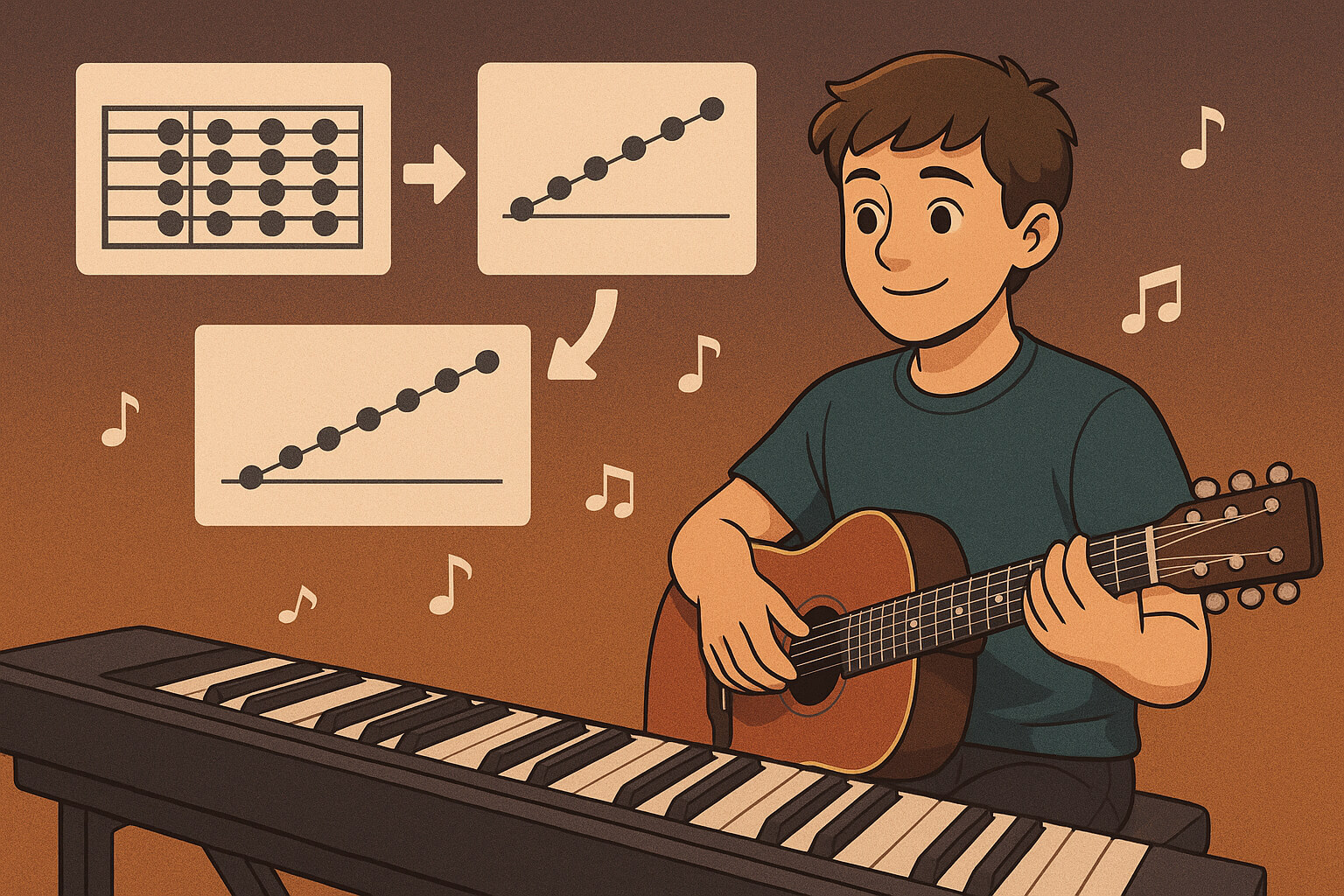August 04, 2025

Learning musical scales might sound like music theory homework, but it’s actually your gateway to playing freely, improvising confidently, and understanding music deeply.
Whether you're on piano, guitar, violin, or even singing — scales are the language music speaks. And learning them doesn’t have to be boring or hard.
Let’s explore how to learn scales in a way that feels fun, practical, and totally doable — even if you’re just getting started.
Before diving in, let’s get clear: Why are scales important?
Mindset shift: You're not just running drills — you're laying the groundwork for musical freedom.
For beginners, the C Major Scale is your best friend:
Tip: Practice ascending and descending slowly. Focus on clean tone and even rhythm, not speed.
Try this video tutorial:
Don’t get lost memorizing every note. Learn to see and feel patterns.
(Try saying it out loud while you play!)
Tool: Fretboard Hero — gamifies learning guitar scales and notes.
Scales don’t have to be dry exercises. Add a beat and suddenly, you’re making music.
Practicing this way builds timing, groove, and musical intuition — and it’s way more fun.
Instead of trying to memorize every scale at once, slow it down:
Challenge:
App: Toned Ear – helps reinforce scale sound recognition through ear training.
Here’s where the magic happens — theory becomes music.
Pick a favorite song and figure out what scale it uses. (Hint: many pop songs are in C, G, or A minor!)
This turns scale drills into real-world musical tools.
Here are some curated reads and tools to deepen your practice:
Each scale you learn is a building block. Use them to construct melodies, improvise solos, and unlock creativity.
You don’t need to master every scale overnight. One at a time. Bit by bit. And with the right mindset and tools?
🎶 You’ll go from “I’m learning scales” to “I’m creating music.”
Stay up to date with the latest tips, expert insights, product reviews, and step-by-step guides to help you grow, create, and succeed—no matter your industry or passion.